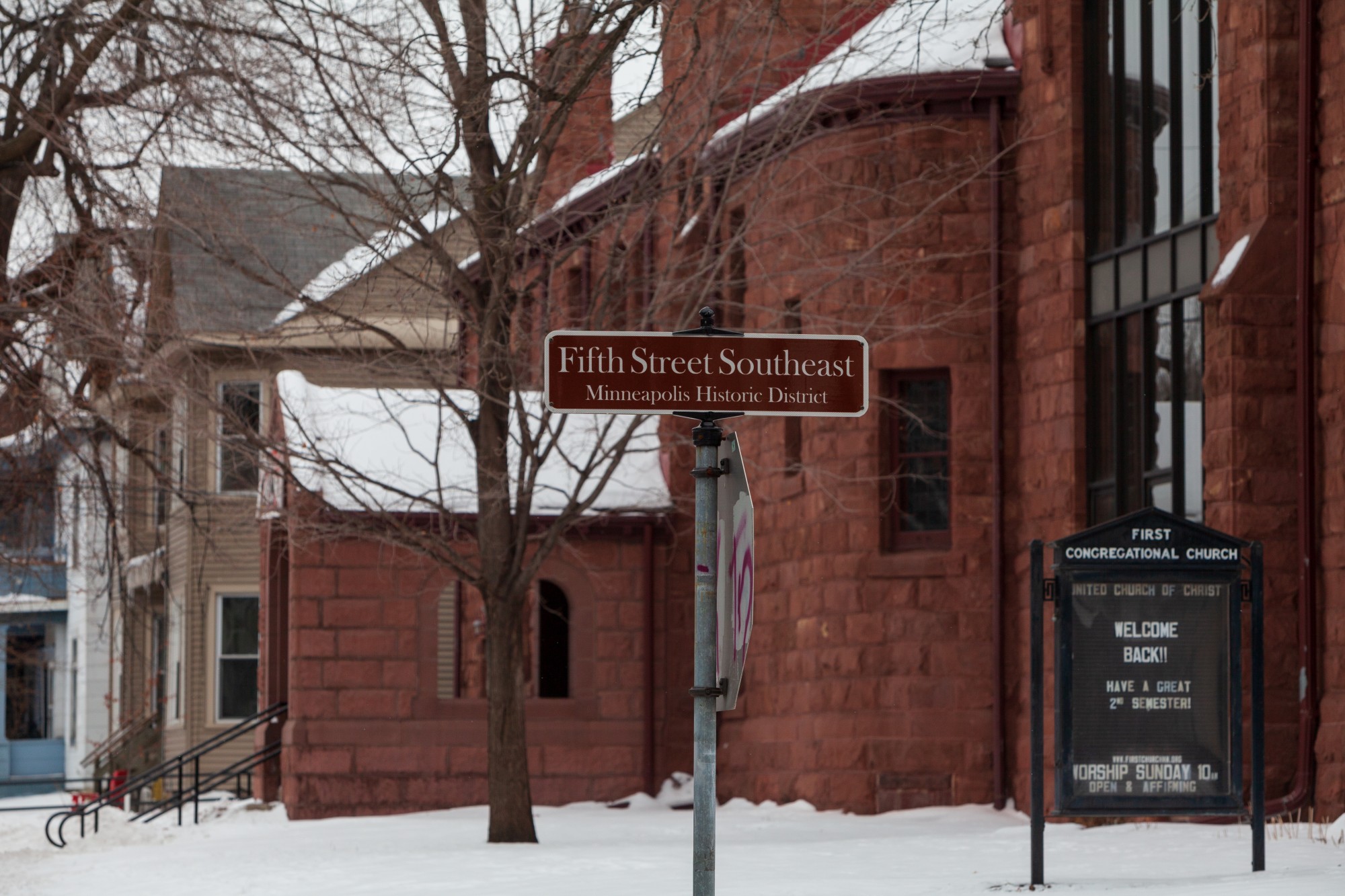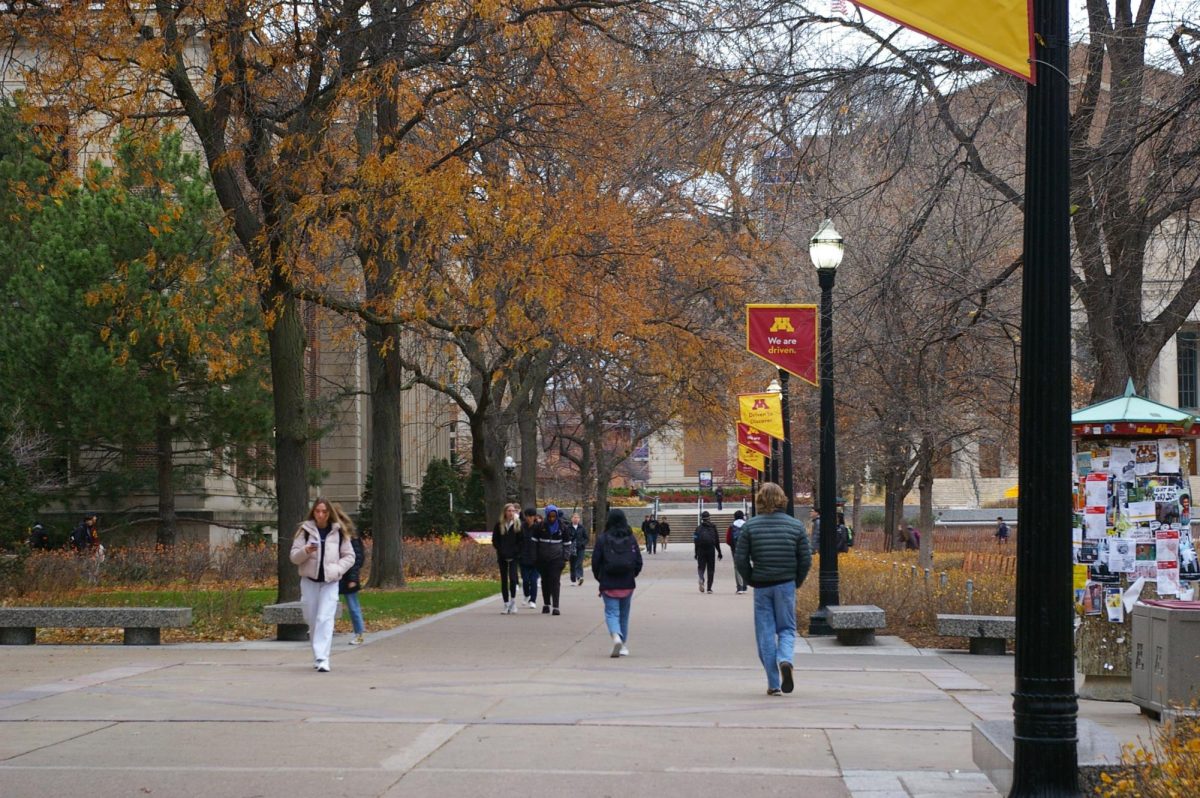Chris Lautenschlager, the Marcy-Holmes Neighborhood Association (MHNA)’s executive director, will leave his position with the organization on Friday after eight years with the organization.
Lautenschlager became the executive director of MHNA in 2016 after working various odd jobs such as making websites and organizing files within the organization for the first two years after he joined in 2014. MHNA works to help develop and advance the Marcy-Holmes neighborhood through community involvement, according to the association’s website.
Although he worked for previous neighborhood associations during his career, Lautenschlager said Marcy-Holmes’s unique diversity made working for the organization an exciting challenge.
“There’s no neighborhood quite like Marcy-Holmes,” Lautenschlager said. “You have millionaires living along the river, you have college students on the east side with $0 to their name … you have some of the oldest buildings and some of the newest buildings … you don’t get that in many neighborhoods.”
Throughout his tenure at MHNA, Lautenschlager was involved in several projects including a bridge renovation project on Fifth Street and a rehabilitation project in Elwell Park that focused on repairing and installing artwork. Lautenschlager said those projects in particular were special because they took years of planning and made the spaces safer and more accessible.
Lautenschlager said his role as executive director of MHNA was to collaborate with the community on improving the neighborhood rather than making decisions by himself.
“I’m driving the car, but everybody’s telling me where to go,” Lautenschlager said. “It’s never been me making a decision about anything, it’s about giving [the community] choices. If people vote in favor of something, I move forward with them.”
MHNA collaborates with its members and committees on projects ranging from land use to environmental initiatives. Members of the organization said Lautenschlager was special in his role due to his ability to connect and get more people involved with MHNA.
Kent Kramp is the owner of the Dinkytown location of Raising Cane’s, which opened in 2018. The same year, Kramp was elected president of the Dinkytown Business Alliance (DBA) and now serves as the vice president of the DBA. Kramp said he worked closely with Lautenschlager to help manage and fund the DBA, leading to Kramp joining MHNA’s Board of Directors in 2021.
“One thing Chris really focused on was acknowledging Dinkytown as part of our neighborhood, saying they should be included,” said Kramp. “He worked … so that business owners and property owners in Dinkytown could actually be part of MHNA and join the board.”
Lautenschlager’s funding combined with his recruitment of businesses to the association is what kept large portions of MHNA alive during the pandemic, said Barbara Camm, co-founder of Preserve Historic Dinkytown, a local nonprofit that works with development groups to maintain the neighborhood’s cultural legacy.
Camm worked as an MHNA board member for six years and said Lautenschlager’s commitment to inclusion helped greatly expand the organization.
“Chris was very creative in trying to work out funding to cover all the neighborhood’s expenses,” Camm said. “When COVID-19 hit, he handled the transition to a virtual organization very well, keeping the board together and including community members as well.”
When he began working as the association’s executive director, MHNA’s board of directors was largely comprised of homeowners, with only one member out of 15 being a renter. Lautenschlager said he worked to change the organization’s bylaws to be more inclusive in order to make the board more representative of the neighborhood as a whole.
Lautenschlager removed rules from the organization’s bylaws that restricted when people could become members and participate in decisions and board elections. Additionally, he changed MHNA’s election dates from June to October to ensure students would be on campus with an opportunity to be involved.
“There were exclusionary rules that were slanted against student involvement,” Lautenschlager said. “I think those are the biggest changes that you don’t quite see on the surface or the website … I’m most proud that we brought our organization into the 21st century.”
After eight years with MHNA, Lautenschlager said he is leaving due to a “variety of factors,” including to allow new voices in the organization to be heard and because he feels fulfilled by his contributions to it.
Lautenschlager gave his notice to MHNA members at the beginning of June, and the association will hire an interim director until it decides if another executive director is necessary.
Harper Beeland was hired as MHNA’s community event organizer in March. Despite only working with him a few months, Beeland said MHNA hopes to continue the work Lautenschlager laid the foundation for.
“The whole basis of my job is wanting to diversify our membership and the relationships in general we have in the neighborhood,” Beeland said. “I’m going to try to take advantage of the ones Chris has so we don’t have to start from scratch.”
Through nervous laughter, Lautenschlager said he doesn’t know what his future holds. Although he wants to continue helping Marcy-Holmes, Lautenschlager said he’s looking forward to spending some time away.
“Right now, I’d rather take my kids swimming,” Lautenschlager said.




















